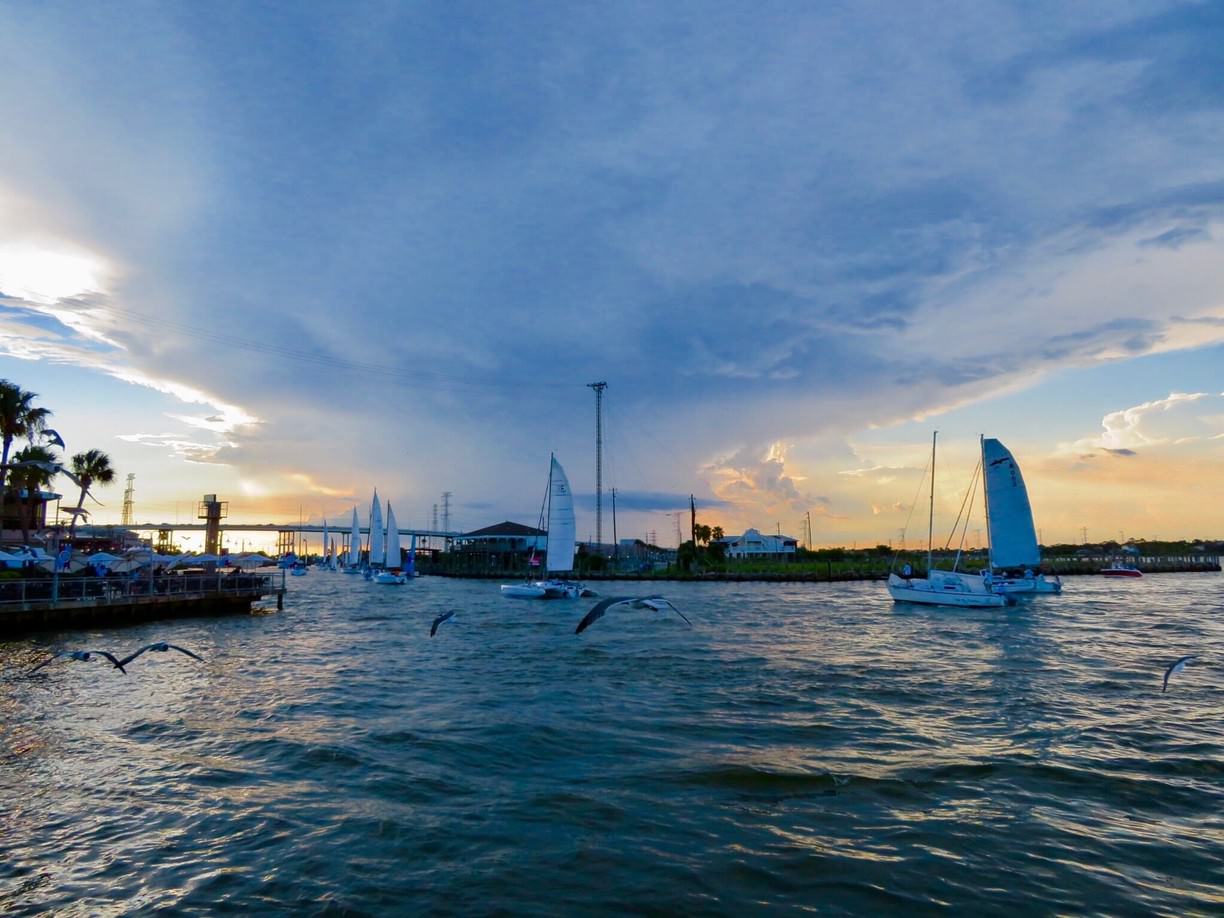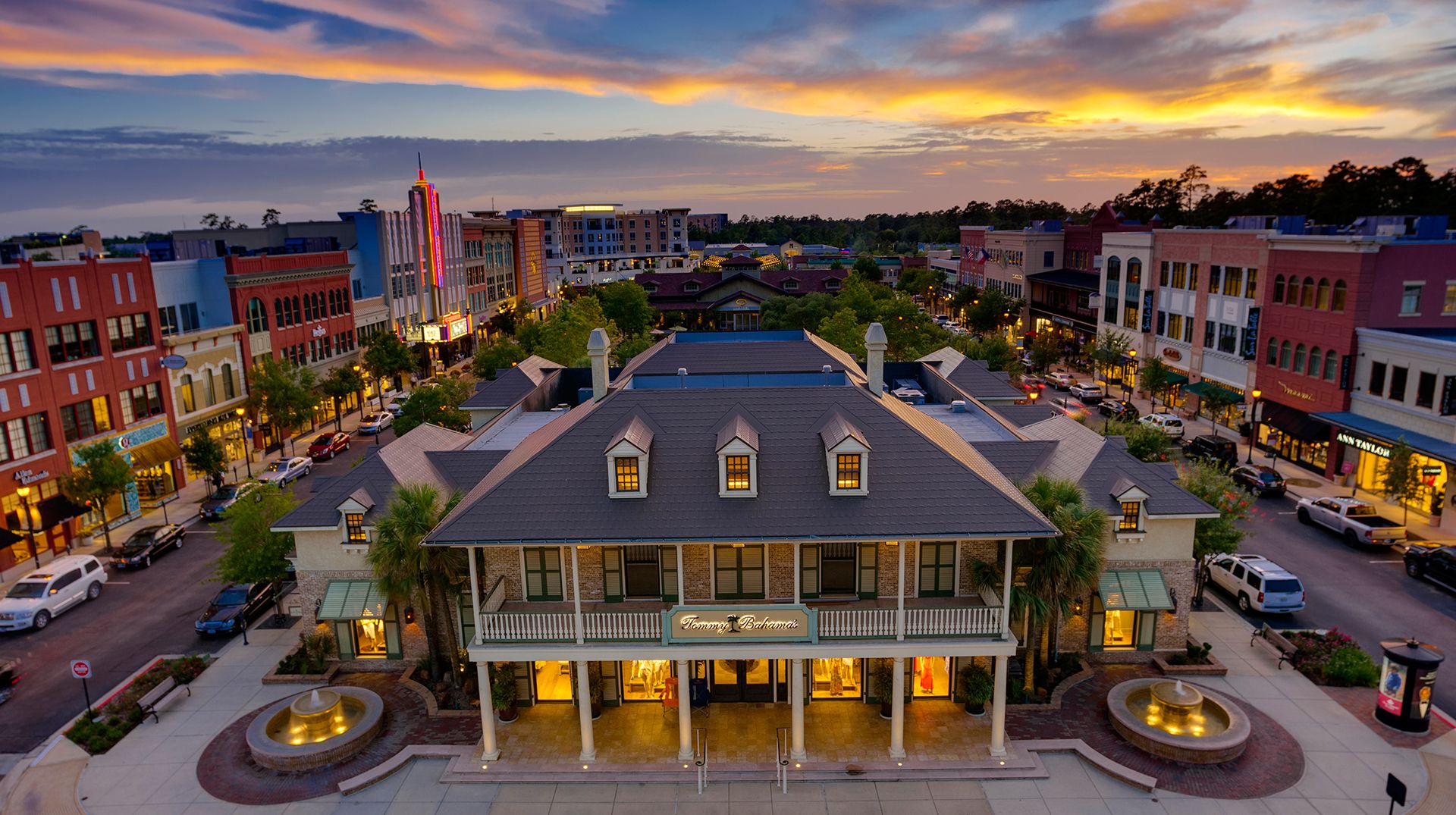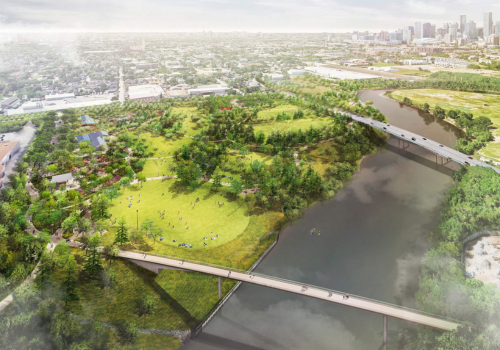12 Popular Houston Neighborhoods for Newcomers
Published Nov 12, 2021 by Megan Broussard
12 Popular Houston Neighborhoods for Newcomers
As one of the fastest growing cities in the country, Houston is diverse and brimming with opportunity. The metro region boasts a strong quality of life and low cost of living that draws new residents from across the country and around the world.
Whether you want to cheer on your favorite sports team or indulge in one of the nation’s most sophisticated dining landscapes, Houston truly has something for everyone. The size of greater Houston can seem daunting at first, especially for newcomers deciding where to put down roots. We broke down 12 of the area’s most popular neighborhoods and what they have to offer.
Find a Family-Friendly Suburban Feel in Bellaire/Meyerland
For those looking to own a home in a family-centric area with excellent school districts, Bellaire is a good option. Located in southwest Houston, this neighborhood has a suburban feel but is still close enough to the heart of downtown to enjoy some of the city’s best attractions, such as the Houston Zoo and top-rated Houston Children’s Museum! Don’t want to go too far? Bellaire has plenty of restaurants, coffee shops, kid-friendly breweries, parks and more for residents to enjoy!
Soak in the waterfront views in Clear Lake
Midway between Houston and Galveston, Clear Lake, also known as the Bay Area, hosts a variety of water recreational activities, such as fishing and water sports. This residential district is also home to Space Center Houston, the Kemah Boardwalk and countless seafood restaurants. There is plenty to do here for the outdoorsman/woman, and great public schools that are highly rated.
Dive into a Budding Urban Community in EaDo
East Downtown, more commonly called EaDo, is a growing neighborhood with exceptional city views, concert venues, diverse dining options and year-round sporting events. In fact, Houston has six professional major league teams, including the 2017 World Series Champion Houston Astros and the NBA Finals Champions Houston Rockets. The neighborhood is not only convenient for those looking to catch a game, it’s also near the Texas Medical Center, the largest medical center in the world.
Create Memories in the Cosmopolitan Energy of Galleria/Uptown
Centrally located in the City’s Uptown District, the Galleria/Uptown neighborhood offers more than 700 retailers, exquisite restaurants and luxury hotels. It’s also home to Texas' largest shopping mall and center for high-fashion retail, The Galleria. In addition to trendy shopping centers and eateries, this is also the 17th largest business district in the U.S. If loft living and fine dining is your preference, this might just be the location for you.
Cozy Up to Small-Town Charm with Garden Oaks/Oak Forest
Oak Forest and Garden Oaks are two adjoining neighborhoods nestled just north of the 610 Loop. Close to large parks accompanied by spacious backyards and lots, this predominately residential neighborhood is known for its green spaces, featuring oak, pecan and pine trees. The area has a small-town atmosphere with big city benefits. Garden Oaks/Oak Forrest boasts several options for schools and family-friendly amenities.
Jump into One of Houston’s Oldest Neighborhoods - The Heights
Northwest of downtown is the historic Houston Heights. This is one of Houston’s oldest planned communities, dating back to the late 1800s, and is well known for its signature bungalows. The Heights also offers a wide variety of activities, including antique stores, farmers markets and patio restaurants. With 450 Yelp-rated establishments and well-preserved Victorian architecture, this neighborhood has plenty to offer locals, tourists and new residents alike.
Embrace the Eclectic in Montrose
Celebrate art, nightlife and a wide variety of unique small businesses in the vibrant Montrose neighborhood just west of downtown, bordering Houston’s Museum District. Grab some java at one of the many coffee shops or a specialty cocktail at a signature bar. This pedestrian-oriented enclave is a great place to live for the creative minds looking for a place that offers diversity and inspiration.
Indulge in Major Green Spaces and Shopping Centers in Memorial
Memorial offers walking trails, reputable schools and several retail developments, including Memorial City, Town & Country Village and the widely popular CityCentre. It’s one of the largest and most affluent neighborhoods of Houston, spanning over 80 miles. This is a great option for families that’s not only close to downtown and The Galleria, but one of the largest urban parks in the country.
Leap into Trendy Midtown
Packed with high-rise apartments, eclectic restaurants and a vibrant late-night scene, Midtown is a popular choice for young professionals. Situated between downtown and the Museum District, Midtown is where you’ll find a wide array of choices to explore the best Houston has to offer, all within walking distance.
Stay Near the Heart of Houston’s Culture in the Museum District
This aptly named neighborhood is home to 19 world-class museums, including the Museum of Fine Arts Houston, the Houston Museum of Natural Science and the Houston Children’s Museum. The cultural institutions featured in this tree-lined neighborhood attract more than seven million visitors every year and appeal to every interest of all ages. The neighborhood is next to the Texas Medical Center and just a few blocks away from Rice University, making it an attractive option for employees of those institutions to live, work and play.
Live in the Nationally Ranked Suburban - Sugar Land
Sugar Land is located 20 minutes south of Houston and is steadily growing as more and more families choose to call it home. Much of Sugar Land is devoted to residential use, and Fort Bend and Lamar Consolidated ISD are major draws for families with children. The area’s also garnered national recognition as one of the safest midsize cities in America. Incorporated as a city in 1959, Sugar Land continues to grow rapidly with new attractions such as Constellation Field, home of the minor league Sugar Land Skeeters and the Smart Financial Centre, a performing arts venue.
Explore the Heavily Forested Area of The Woodlands
Appropriately named for its development in and around 28,000 tree-filled acres, this master planned community has so much to offer any and all lifestyles. Hiking, kayaking, golfing and attending concerts are just a few ways residents of The Woodlands spend their days. It is also home to many corporate campuses and is conveniently located just 28 miles north of downtown Houston. Public schools are also highly rated, making this an ideal location for families.
Visit the Houston Neighborhoods & Communities page to learn more about the many different regions and neighborhoods of the city. Find out more about what Houston has to offer with Here is Houston: The Official Relocation & Newcomer Guide.
 The Houston Report
The Houston Report



























